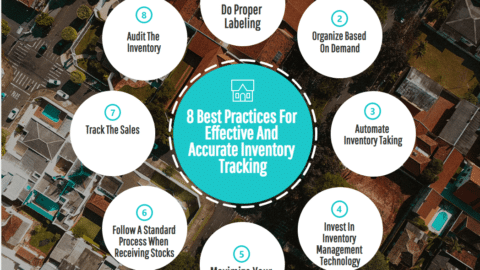What Are the Main Differences Between Data Centers and Data Warehouses?

Table of Contents
One of the primary issues that face companies that deal with data on a daily basis is data siloing. This is where many different departments will generate data, but won’t have a centralized location where they can share all of it. Due to this, data silos are connected where pillars of data cannot be accessed freely, creating many stagnant pools of information. To combat this, companies turn to a range of data infrastructure tools, like data warehouses and data centers.
Data warehouses exist to dismantle these data silos, acting as a central location where absolutely all data can be stored. Instead of each department having a different data storage location, all information is fed into the same warehouse. With this, all of the data that a business produces is accessible to all of the employees within the company,. They are instantly creating an accessible method of operating and gaining insight from data.
As the sheer quantity of data that is collected by businesses on a daily basis has increased, the amount of information that local data warehouses had to store reached unsustainable levels. With this, many businesses have switched to using cloud data warehouses. Because these offer a greater degree of scalability and flexibility.
Today, a majority of IT majors and other enterprises are looking forward to the services of colocation data centers that are managed by expert Cloud migration companies. This minimizes the risk of data loss or theft, apart from enhancing the aspect of data security and privacy.
When looking at leading data warehouses, they offer a lot more than just data storage. For example, if we look at a comparison of Clickhouse vs Druid, there are features like security and analysis integration that make data warehouses even more valuable to companies.
In short, this means that data warehouses are typically a location where data is stored. But they can also be a method to integrate data into BI tools.
What is a data center?
On the other hand, data centers are much larger facilities where absolutely all IT equipment, servers, and local data store apparatuses are stored. As the name suggests, a data center is a central hub where absolutely anything connected to computers is located for a business. Typically, data centers will focus on assembling entire IT systems. As well as disseminating data around the company, as well as processing new data.
Data centers are critical for modern businesses. Because the vast majority of companies rely on IT to conduct their day-to-day work. Alongside this, data centers are responsible for storing applications and other systems that companies will use. These include their eCommerce platform to the communication streams they use each day being located within a data center.

What Are the Main Differences Between Data Warehouses and Data Centers?
Data warehouses essentially boil down to the storage of digital assets, providing a location where all a company’s online data can be put and readily accessed. Data centers, on the other hand, are physical locations where all businesses store any main IT servers or equipment.
Especially with the move toward cloud data warehouses, this makes the distinction even easier. With data warehouses often being remotely located, while data centers are located within a company’s building. Equally, the main functions of these architectures also differ. Because data warehouses being used to dismantle data silos. While data silos are used to ensure all employees can access services offered by the company.
If your business uses a cloud data warehouse, then the fact of management of these architectures will also differ. Typically, a cloud data warehouse is managed by the cloud provider, while a data center will need to have upkeep staff that continuously run checks and ensure everything is working correctly within the local site.

What Are The Distinct Benefits of Data Warehouses and Data Centers?
To further illustrate how these two data architectures are different, let’s quickly move through the different benefits of each of these services.
Typically, there are four main reasons that businesses create warehouses:
Improves data quality
By transforming data and cleaning it up as it comes into a data warehouse, they can help to increase the quality of data that businesses are working with.
Feeds into BI
By organizing and structuring data, it can then more easily be fed into business intelligence tools, helping businesses to get more from the data they collect.
Improves consistency
Within a data warehouse, data scientists can unify data into consistent formats, making it much easier to process and read. This movement from unstructured to structured data is vital, with the quantity of unstructured data growing at a rate of 65% per year. With a data warehouse, businesses can stay on top of this.
Increases security
Within a secure data warehouse, data is often much safer than when compared to data sets. Because those are spread out over many different unsecured systems.
On the other hand, data centers are there to cover a more expansive range of IT functions. With this in mind, their benefits are distinct to that of data warehouses, which only focus on data and the quality of its storage.
The main benefits of data centers are as follows:
- Complete control over company IT infrastructure. All IT services go through data centers, helping to ensure consistency and access across services.
- Improved Monitorin. By holding all platforms and apps in one place, IT technicians can more easily monitor a company’s services with a data center.
- Local Accessibility. As services operate locally, employees that go into the office can easily access any of the IT platforms or applications they need by communicating with those that work in the data center.
Data centers are incredibly useful for organizing and distributing services across a company, while data warehouses focus on cleaning, structuring, and processing digital data assets.
Final Thoughts
While both are vital for modern businesses, they do not offer the same functions, nor the same rewards. It’s true that they both deal with data, to an extent. But that is where warehouses stop, and data centers begin. A data warehouse will store and manage data. While data centers will manage all IT systems that are related to a business.
With this in mind, data warehouses have a much narrower scope than data centers. They offer a comprehensive system of servers, platforms, and applications. That said, both of these are essential. As data warehouses being vital to businesses that want to overcome silos and get more insights from the data they produce.
While both these data architectures are important, businesses should refrain from mixing them up as they’re far more different than similar.

Adhar Dhaval is experienced portfolio, program and project leader with demonstrated leadership in all phases of sales and service delivery of diverse technology solutions. He is a speaker sharing advice and industry perspective on emerging best practices in project leadership, program management, leadership and strategy. He is working for the Chair Leadership Co.










Great Article.
This is just an awesome blog that people can learn. Very good information. It’s very informative and explained in clear, and simple words.
“Hi, very informative post. Join Distance Learning MBA in India the best Digital marketing course, Logistics and Supply Chain Management and MBA degree are open for Distance Education from DY Patil University, top-ranked management colleges business school in India
“Hi, informative nice blog. Best Distance Education Courses Universities 2022 enroll now in Online MBA, BA, BCOM, BBA, and BCA Online programs and get Approved from top UGC DEB Universities